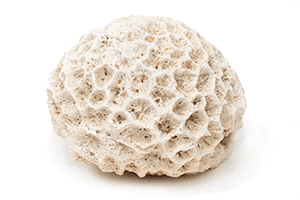In the competitive world of athletics, every edge counts. Nutrition plays a pivotal role in an athlete’s performance and recovery, with trace minerals standing out as unsung heroes. Essential for a myriad of physiological functions, trace minerals like calcium, magnesium, iron, and potassium are the building blocks for peak athletic performance. This blog post explores how athletes can leverage these trace minerals to enhance recovery times, boost stamina, and achieve their best performance yet.
The Foundation of Strength and Recovery
Calcium and Muscle Function: Beyond Bone Health
Calcium’s pivotal role in muscle contraction and relaxation is a cornerstone of athletic performance. When a nerve stimulates a muscle, calcium is released; it interacts with the muscle proteins actin and myosin, facilitating contraction. After the contraction, calcium is pumped back out of the muscle, allowing it to relax. This cycle is crucial for all types of physical activities, from explosive jumps to endurance runs.
For athletes, especially those involved in high-intensity training, ensuring an adequate intake of calcium is vital. Calcium’s role in muscle function means that a deficiency can lead to decreased performance, increased risk of muscle cramps, and a longer recovery time. Dairy products, leafy greens, and fortified foods are excellent calcium sources, but athletes with higher requirements or dietary restrictions might consider supplements to meet their needs. Balancing calcium intake with vitamin D is also essential, as it enhances calcium absorption in the gut.

Magnesium’s Role in Energy Metabolism: Fueling Athletic Performance
Magnesium’s involvement in over 300 enzyme reactions underlines its critical role in the body’s energy production and muscle function. These enzymes are integral in ATP (adenosine triphosphate) production, the primary energy carrier in cells. Magnesium acts as a cofactor for ATP, meaning ATP must be bound to magnesium to be biologically active. This relationship underscores magnesium’s importance in energy metabolism, particularly during exercises that demand high ATP levels.
Additionally, magnesium’s role in protein synthesis is crucial for muscle repair and growth, key components of athletic training and recovery. Magnesium deficiency can lead to increased fatigue, muscle weakness, and cramps, significantly impacting training quality and performance. Foods rich in magnesium include nuts, seeds, whole grains, and leafy green vegetables. Given the magnesium loss through sweat and the increased requirements for athletes, supplementation may be beneficial to ensure optimal levels for performance and recovery.
Oxygen and Electrolyte Balance for Endurance
Iron for Oxygen Transport: Enhancing Aerobic Capacity
Iron’s role in the body extends far beyond its well-known contribution to hemoglobin formation; it is indeed a linchpin in the transport and metabolism of oxygen, elements crucial to any athlete, especially those in endurance sports. Iron binds to hemoglobin molecules in our red blood cells, facilitating the transport of oxygen from the lungs to muscles and other tissues. During aerobic exercise, the body’s demand for oxygen spikes significantly to meet the increased energy requirements. This process is where iron steps into the spotlight, ensuring that oxygen delivery is efficient and meets the body’s heightened needs.
However, maintaining optimal iron levels poses a unique challenge for endurance athletes. Intense training regimens can lead to increased iron loss through sweat, the gastrointestinal tract, and the breaking down of red blood cells—a phenomenon known as foot strike hemolysis, common in activities like running. Iron deficiency can lead to anemia, characterized by fatigue, weakness, and a noticeable decline in performance and recovery rates. The key to preventing these adverse effects lies in regular monitoring of iron levels and adjusting dietary intake or considering supplementation accordingly. Foods rich in iron, such as lean meats, beans, and fortified cereals, alongside vitamin C-rich foods to enhance absorption, can help maintain adequate iron status for peak performance.
Potassium and Electrolyte Balance: Sustaining Muscle and Nerve Function
Potassium’s significance in athletic performance is multifaceted, playing a critical role in muscle and nerve function and maintaining the body’s electrolyte and fluid balance. As an electrolyte, potassium facilitates electrical charges needed for muscle contractions and transmitting nerve signals. It’s why maintaining potassium levels is crucial for athletes; imbalances can lead to muscle cramps, weakness, and fatigue, all of which can impede an athlete’s training and performance.
During prolonged periods of exercise, the body loses potassium through sweat, which, if not replenished, can disrupt the delicate electrolyte balance needed for optimal muscle and nerve function. The stakes are high in competitive sports, where even minor setbacks like muscle cramps can be the difference between winning and losing. Hence, ensuring adequate potassium intake through diet or supplements becomes essential. Foods like bananas, potatoes, and spinach are excellent potassium sources, helping athletes maintain the necessary electrolyte balance for peak muscle function and overall performance.
Athletes must prioritize their nutrition, focusing on key minerals like iron and potassium, to sustain their training demands, improve recovery, and achieve their performance goals. Regular health check-ups and consultations with sports nutrition experts can provide tailored advice, ensuring that dietary strategies effectively support their athletic pursuits.
Taking Action for Athletic Excellence
Athletes looking to maximize their performance and recovery should consider incorporating foods rich in these essential minerals into their diets. Supplementing your nutrition with these trace minerals, under the guidance of healthcare professionals, can tailor a plan that aligns with your athletic goals and health profile.
Nutrition is a powerful tool in an athlete’s arsenal. By understanding and applying the benefits of trace mineral supplementation, athletes can unlock their full potential, achieving new personal bests and reaching their peak physical condition. Remember, a balanced diet complemented with the right supplementation strategy can elevate your athletic performance to levels you’ve only dreamed of.
